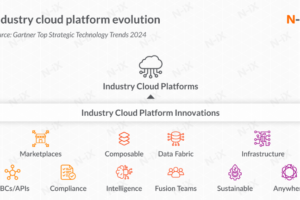In today’s digital landscape, amidst the myriad of marketing strategies, email marketing stands tall as a fundamental tool in any marketer’s arsenal. But what exactly is email marketing, and why is it a cornerstone of modern business promotion?
Defining Email Marketing
Email marketing refers to the strategic use of emails to nurture relationships with current and potential customers. It’s a targeted approach that leverages the power of personalized messaging to communicate, engage, and convert recipients into customers or brand advocates.
Key Components of Email Marketing
Content Personalization: Tailoring content to suit the interests and needs of specific audience segments, creating a more engaging and impactful message.
Automation and Segmentation: Utilizing automation tools to schedule emails and segmenting the audience based on demographics, behavior, or preferences for more targeted communication.
Call-to-Action (CTA): Including compelling CTAs that encourage recipients to take specific actions, such as making a purchase, signing up for a service, or downloading content.
Analytics and Optimization: Monitoring campaign performance through analytics and continuously optimizing strategies based on data insights to maximize effectiveness.
The Importance of Email Marketing
1. Direct and Personalized Communication: Email marketing allows businesses to directly communicate with their audience, delivering tailored messages that resonate with individual preferences and behaviors.
2. Cost-Effective and High ROI: Compared to many other marketing channels, email marketing offers a high return on investment (ROI) due to its relatively low cost and potential for generating substantial revenue.
3. Relationship Building and Brand Loyalty: Consistent and well-crafted email campaigns nurture strong relationships with customers, fostering brand loyalty and increasing customer retention.
4. Measurable Results and Data-Driven Insights: Email marketing provides valuable metrics such as open rates, click-through rates, and conversion rates, offering actionable insights for future campaign optimization.
Leveraging Email Marketing for Success
To harness the full potential of email marketing, businesses should focus on:
Building a Quality Email List: Grow an organic list of subscribers who are genuinely interested in your brand and its offerings.
Creating Compelling Content: Craft engaging, valuable, and relevant content that resonates with your audience, driving higher engagement and conversions.
Segmentation and Personalization: Use customer data to segment your audience and personalize emails, ensuring messages are tailored to specific interests and behaviors.
Testing and Optimization: Continuously test different elements of your email campaigns (subject lines, content, CTAs) and optimize based on performance metrics to enhance results.
In conclusion, email marketing is a dynamic and powerful strategy that enables businesses to directly connect with their audience, drive engagement, and achieve business goals. By leveraging its personalization capabilities and data-driven insights, businesses can cultivate lasting relationships with customers, enhance brand loyalty, and drive sustainable growth.









